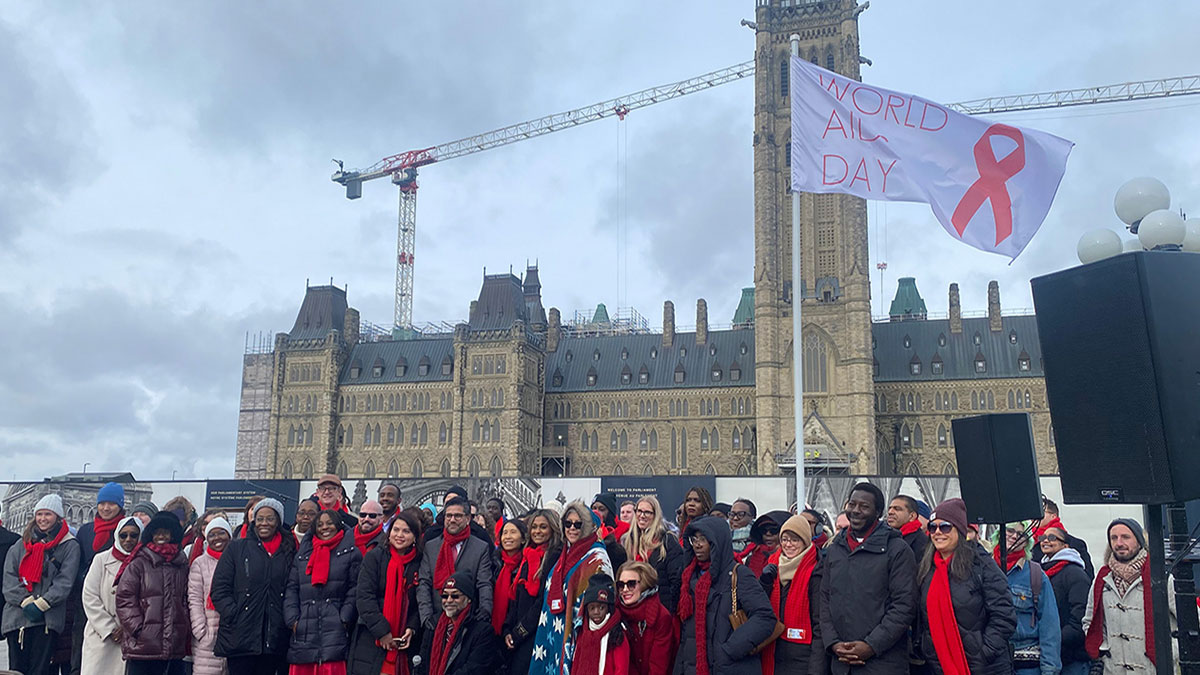Canada has seen a recent rise in HIV cases, backsliding on global and national goals to end the decades-long epidemic by 2030.
In the wake of World AIDS Day, experts say harmful stigmatization of HIV/AIDS remains a core reason for the recent reversal of progress in battling the disease.
“It is true,” said Theresa Tam, Canada’s chief public health officer, “we’re going backwards from where we were heading.”
And rates of those contracting HIV are rising disproportionately among people experiencing health and social inequalities.
Stigma, discrimination, substance use and inaccessible health care “remain key drivers that contribute to the rise,” said Tam.
United on Parliament Hill recently for a rally, attendees wore red scarves to keep warm as flecks of snow fell around them. Many had ribbons pinned on their lapels to support those living with HIV/AIDS.
This year’s theme — “Take the Rights Path” — was a reminder that inequality and human rights need to be front of mind when tackling the HIV epidemic.
Fundamentally, HIV is a manageable chronic disease. The stigma associated with it, however, magnifies its impact and continues to hinder efforts to curb infection rates, said Billa Hissein, of the AIDS Committee of Ottawa.
“Racism reinforces HIV stigma, HIV stigma reinforces racism, creating a vicious cycle of discrimination and disadvantage,” said Hissein.
Fear surrounding HIV often prevents individuals from seeking life-saving care. “The social isolation, the discrimination, and the shame associated with HIV stigma,” said Hissein, leads to mental health issues and intensifies the challenge of living with a compromised immune system.
“It’s crucial to challenge and eliminate the stigma to improve the lives of those living with HIV and those vulnerable to it,” she said.
It’s estimated that 39 million people are living with HIV globally, including about 65,000 in Canada. Some five new cases are diagnosed each day in this country, resulting in a 15-per-cent increase in the number of HIV-positive individuals since 2020.
New data from the Public Health Agency of Canada shows a clear rise in HIV cases. “Why? Racism,” said Tharani Nappers, head of government affairs at Viiv Healthcare, a pharmaceutical company that specializes in caring for those with HIV/AIDS.
For a virus surrounded by myths and fears, advocates say World AIDS Day is an important occasion to raise awareness, to reflect on what Canada has achieved and what it has yet to achieve.
Participants in the recent ceremony on Parliament Hill say more action is needed to reach national and global targets to end the epidemic within five years — a longstanding goal.
“We’ve come to talk about today but tomorrow we have to act,” said Patrick O’Byrne, research chair of public health and HIV prevention at the University of Ottawa. “No one can be left behind.”
World AIDS Day is an opportunity for people all around the world to commemorate those who have lost their lives to HIV/AIDS and to stand behind the tens of thousands who live with the virus today.
The commemorative day also marks the launch of Indigenous AIDS awareness week in Canada.




